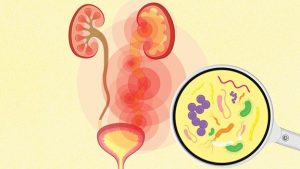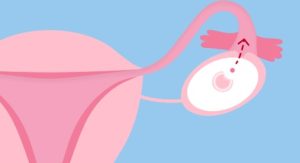Remember when you were a kid and couldn’t wait to grow up? Be careful what you wish for!
Puberty brings a rush of changes that can feel overwhelming. Have you started noticing hair in new places or mood swings that seem out of the blue? Don’t worry, it’s totally normal. Your body is being flooded by hormones as you transition into an adult.
Your body and brain are going through a wild transformation to prepare you for adulthood. Keep on reading to learn ways to cope with challenges like acne, body odor, and moodiness.

Puberty Hormones 101: What’s Happening to My Body?
Around ages 8-14, your body starts changing in major ways. Why? Puberty hormones like estrogen, testosterone, and growth hormone are kicking into high gear. These chemicals are responsible for transforming you from a kid into an adult.
Estrogen causes girls to develop breasts, start menstruating, and gain body fat in areas like the hips and thighs. Testosterone leads boys to get deeper voices, grow facial and body hair, and gain muscle mass. Growth hormone fuels increased height and bone growth in both boys and girls during puberty.
These puberty hormones also impact your emotions and mood. You may feel excited one minute and cranky the next. This hormonal rollercoaster ride is totally normal, though it can feel frustrating. The good news is, that your hormone levels will stabilize in your late teens as puberty winds down.
Other changes to expect include:
- Acne due to oilier skin. Wash problem areas gently but regularly to keep breakouts in check.
- New body odor. Shower daily, use deodorant, and change clothes frequently.
- Curiosity about relationships and sex. This is normal and healthy, but take things slowly and be safe.
- Clumsiness or difficulty concentrating. Your body is growing fast, so give yourself time to adjust. Extra sleep and patience help.
Puberty is a challenging but temporary phase. Focus on embracing the changes in your body and keeping an open dialog with supportive adults. The hormonal chaos won’t last forever, and you’ll come out the other end more self-assured and grown into your new adult self.
Raging Hormones: Understanding Mood Swings and Emotional Changes
Raging hormones—we’ve all been there. As a teen going through puberty, your body is producing sex hormones like estrogen and testosterone at a rapid pace, which can lead to mood swings and intense emotions.
One minute you’re on top of the world, the next you feel like crying in your room. Don’t worry, this emotional rollercoaster is totally normal and will level out over time. For now, be gentle with yourself and give your feelings space to just be. Talk to others you trust, like close friends or a parent, counselor, or older sibling. Let them know what’s going on so they can offer support.
You may feel self-conscious or irritable. Try journaling your feelings, doing light exercises like yoga, spending time in nature, or pursuing hobbies that boost your confidence and calm your mind. The key is finding healthy outlets to channel intense emotions.
Your interests and relationships are also changing a lot during this time. Don’t be surprised if certain friends or activities that once brought you joy no longer do. Go with what feels right for you now, even if that means stepping away from past interests or certain social circles. The friends and pursuits that stick with you through all these changes are the keepers.
While the emotional ups and downs of puberty can feel unbearable, know that it’s all leading to developing into a wiser, more self-assured person. Learn to embrace this transformative time of life, raging hormones and all. The stability and self-knowledge you gain will serve you well into adulthood.
Coping With Puberty: Self-Care Tips and Healthy Habits During Adolescence
Going through puberty can be tough, but focusing on self-care and developing good habits will help you thrive during this transition. Here are some tips to keep in mind:
- Stay active and exercise regularly. Exercise releases feel-good hormones that can help balance your mood and ease anxieties. Even taking walks or doing light activities a few times a week can help.
- Practice good hygiene like showering daily, wearing deodorant, and brushing your teeth. This will keep you feeling fresh during a time when your body is changing quickly.
- Get enough sleep every night. Aim for 8-10 hours of sleep to allow your body and mind to rest. Lack of sleep can intensify mood swings and stress.
- Eat a healthy, balanced diet. Focus on whole foods like fruits and vegetables, whole grains, and lean proteins. Limit excess sugar and processed carbs. Staying well-fed will give you energy and help your body develop.
- Find trusted sources of information about puberty and ask questions. Learn what to expect from websites like Planned Parenthood or books on adolescence. Talk to a parent, teacher, or doctor if you have concerns.
- Connect with others. Spend time with supportive family and friends who understand what you’re going through. Join a sports team or club to stay socialized and build new friendships.
Practice self-care by doing things you enjoy. Make time for hobbies, art, music, journaling, or whatever helps you relieve stress and boost your confidence from the inside out. Take changes in stride and be patient with yourself.
Know that ups and downs are normal, but this phase of life will pass. Focus on embracing your developing identity and becoming your best self. With time and practice, coping with puberty will become second nature.
So, there you have it, a whirlwind tour through the hormonal rollercoaster of puberty. Your body is changing in crazy ways, your moods are all over the place, and life just feels chaotic and confusing.
But don’t worry, every single person on the planet has gone through this, and we’ve all come out the other side as functioning adults. The key is not to fight the changes but to accept them and be kind to yourself. Talk to people you trust, do things you enjoy, and try to maintain a sense of normalcy.
Before you know it, your hormones will level out, the crazy mood swings will fade, and you’ll settle into a new normal with your adult body. This too shall pass! Stay strong and remember to breathe – you’ve got this!







